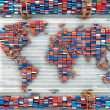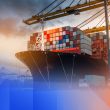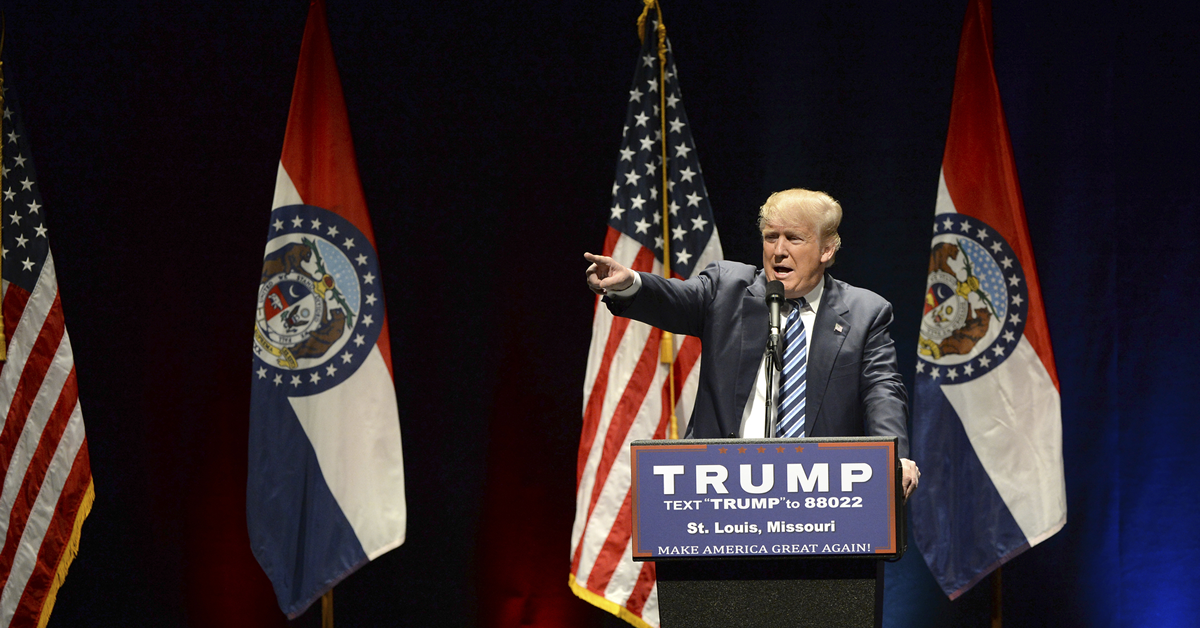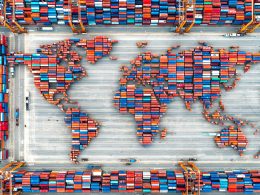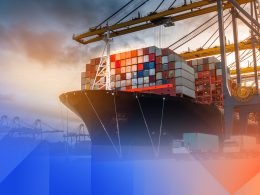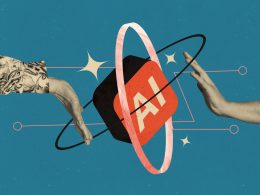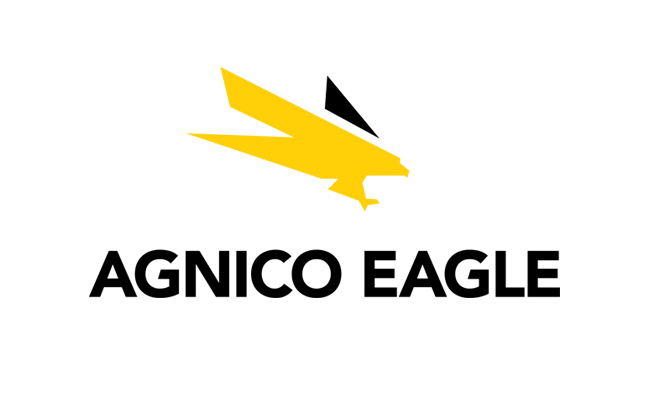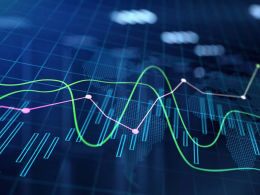What CEOs Said Last Week: Election Uncertainty Looms
by Scott Krisiloff, CIO, Avondale Asset Management
Each week we read dozens of transcripts from earnings calls and presentations as part of our investment process. Below is a weekly post which contains some of the most important quotes about the economy and industry trends from those transcripts. Click here to receive these posts weekly via email.
The Macro Outlook:
Election uncertainty is influencing business decisions
“going into the Presidential election, there’s a lot of uncertainty, there seems to be a lot of uncertainty around the world…So, I’m a little bit with you, I actually don’t think it’s going to be a huge finish to the year…I do look at the election as something that’s holding activity back quite a bit” —Ares Capital CEO Kipp deVeer (Business Development Company)
Businesses are being a little extra cautious
“we are look at a marketplace right now where people are being very cautious, they are being very careful with what they’re spending money on and they are very uncertain relative to what’s going on around the world from a political standpoint relative to just a business environment standpoint and where things are heading.” —Emerson Electric CEO David Farr (Industrial Components)
Trade policy has large effects on a company like UPS
“we’re mindful of the current political commentary on trade…Trade legislation to accelerate economic expansion like the Trans-Pacific Partnership is vital to the health of the U.S. economy. We encourage our political leaders to support and pass pending trade legislation.” —UPS CEO David Abney (Freight)
Most CEOs have their own opinions about what should happen
“So this deficit issue impacts the mental health, the frustration, the positive sense of tomorrow that working people feel in America. It hasn’t got to do with rich folks. It’s got to do with government, fiscal and monetary policy. We have $14 trillion in public debt and $5 trillion in intergovernmental debt. The coupon on that $19-trillion-and-climbing is around 2.3%, and that’s with short-term interest rates at zero virtually. Now, the current Fed, the lady is going to keep interest rates where they are.” —Wynn CEO Steve Wynn (Casinos)
With the right leadership, maybe we could even get to 4% growth
“What I would worry about more is the next President, whoever it is, focuses on the right things. I think we can go to 4%…I think there are a lot of ways…that we can make this country boom. And I think that’s what we should be focusing on and not just pointing fingers at each other and getting mad all the time.” —JP Morgan CEO Jamie Dimon (Bank)
The news networks are definitely winners
“Demand in the upfront was particularly strong for CNN, which has undergone nothing short of a renaissance over the past few years. To date, 2016 is the most-watched year in CNN’s history and as the US presidential election draws closer, CNN continues to gain momentum and take share from its peers.” —Time Warner CEO Jeff Bewkes (Media)
For the rest of us, the good news is that we only have to elect one of them
“There’s a funny bumper sticker I saw which said, the good news is we can only elect one of them. So I think all the possibilities are out there and so there’s only two outcomes and I think the market is kind of ready for either one.” —Moelis and Co CEO Ken Moelis (Investment Bank)
In the meantime, companies are confident–that the environment is going to be lousy
“somebody said, how confident are CEO’s, I said yes they’re confident that the economy will be lousy…they’re confident in that they understand that there will be a no growth economy that’s not good for leverage companies, but it does allow corporations to plan around a very predictable and unchanging low growth economy” —Moelis and Co CEO Ken Moelis (Investment Bank)
International:
Europe was rebounding from Brexit and then everyone went on vacation
“there was a distinct clawing back of the momentum that had been lost due to Brexit up until about a week ago when, as he put it, everybody in Europe started going on vacation…But he’s encouraged that when September comes around that we’ll see things, the momentum reemerge.” —CBRE CEO Bob Sulentic (CRE broker)
Terrorism has been a bigger impact to Europe than Brexit
“In terms of Europe, I don’t know that – I would say the more – the bigger impact in the near-term has been around – from terrorism, not British exit.” —Ecolab CEO Douglas Baker (Business Services)
A complete breakup of the Eurozone is not impossible after Brexit, but it may not happen for five years
“You know, unfortunately that could be one of the fat tail outcomes of a Brexit. Because when you go to Europe…Netherlands is going to have a vote, Italy has a very important referendum, Germany’s going to have a vote…You don’t know how it is going to fall out. And so, that to me is one of those things out there that could possibly happen. It may take more than five years, but it may very well happen.” —JP Morgan CEO Jamie Dimon (Bank)
Rio Tinto said that the construction industry is picking back up in China
“On my most recent trip to China, I met with a number of our customers, partners and government officials. It is clear the construction industry has picked up with the drawdown of housing inventory. This positively impacted commodity prices such as iron ore and met coal. But the recovery is not wide ranging and it’s mainly driven by credit.” —Rio Tinto CEO Jean-Sebastien Jacques (Iron Ore)
Financials:
Negative rates are putting heavy stress on the profitability of financial services companies
“Negative rates and the likely deferral of interest rate rises put increasing stress on banks. Since 2007 we’ve seen our net interest margins contract from 2.9% to 1.8%…in the light of this, we will not now hit our return on equity target of more than 10% by the end of 2017.” —HSBC CEO Stuart Thomson Gulliver (Bank)
Investors are taking on illiquidity in exchange for yield
“we are seeing the frustrated fixed income investor reposition their portfolios into direct lending because of obviously the interest rate environment…folks have decided that putting a portion of their fixed income portfolios into something that is illiquid to achieve better yields…is something they are willing to do. So we’re seeing lot of repositioning on that front form kind of core fixed income.” —Ares Capital CEO Kipp deVeer (Business Development Company)
The asset management industry needs to consolidate
“I think any industry that is maturing and gets larger, you hit a point where consolidation makes sense. I mean, I’m not sure we’re there yet, but certainly you have some outside forces at work that we haven’t seen before. So I think that will contribute.” —Franklin Resources CEO Greg Johnson (Asset Management)
It’s not really clear what happens next
“There are no practical long-term historical precedence to study and use as guides for what comes next. As such, our number one objective is to remain agile and flexible, so that we can adapt to different circumstances as they develop.” —Markel Co-CEO Tom Gayner (Insurance)
It probably doesn’t make sense to buy assets that depend on low interest rates
“I’m not a buyer of ten year bonds. I would be a little worried about drastic actions in the ten year bond. The most important thing…is if we have proper growth in the United States, it will start to normalize interest rates…and if that happens my view is you start to see the ten year go up to a more normal price. We don’t look at today’s price as a normal price” —JP Morgan CEO Jamie Dimon (Bank)
Consumer:
The restaurant industry may be facing over expansion
“The restaurant world gets a little ahead of itself and overbuilt, it’s considered a safe place to invest capital, and when that gets to be too much, then the expansion slows and the bifurcation begins and there’s winners and losers. So, I think that’s where we are. I think there’s a lot of restaurants out there” —Cheesecake Factory CFO Douglas Benn (Restaurants)
Many online retailers are working on their brick and mortar strategy
“Within the last category of online retailers, we see many companies building the infrastructure to open brick-and-mortar locations in a traditional store rollout program. Some examples of this includes Blue Nile, Amazon, Peloton, Warby Parker, and Bonobos” —Macerich COO Robert Perlmutter (Mall REIT)
Technology:
Technology companies are comparing AI to electricity
“We’re now experiencing the dawn of a new era, a time when artificial intelligence is emerging as the lifeblood of all things. Just as the rise of electricity transformed the world 100 years ago, we now work with partner to use AI to transform industry after industry” —Baidu CEO Robin Li (Internet)
Autonomous driving is going to happen faster than people think
“full autonomy is going to come a hell of a lot faster than anyone thinks it will. And I think what we’ve got under development is going to blow people’s minds. It blows my mind, so” —Tesla CEO Elon Musk (Automobiles)
Singapore may be the first locality to adopt robo-taxis
“Singapore’s the most advanced from a plan to get to, use your term, robot taxis…We’ll have piloted vehicles for two years through the end of 2018…And their plan is to have…a fleet of pilotless vehicles in the areas that we’re currently testing beyond 2020 servicing consumers. So they, by far and away, are the further along…there’s a lot of dialogue, but Singapore’s first.” —Delphi CEO Kevin Clark (Auto Parts)
Elon Musk is creating an “alien dreadnought” to produce his auto fleet
“The Model 3 – the internal name for designing the machine makes the machine is the – we call it the alien dreadnought. At the point at which the factory looks like an alien dreadnought, then you know you’ve won. It’s like, what the hell is that? So we’ve got alien dreadnought version 0.5 will be Model 3. It will take us another year get to version 1 and probably a major version every two years thereafter. By version 3, it won’t look like anything else. It might look like a giant chip making place machine or a super high-speed bottling or canning plant, and you really can’t have people in the production line itself. Otherwise you’ll automatically drop to people speed. There’s still a lot of people at the factory, but what they’re doing is maintaining the machines, upgrading them, dealing with anomalies. But in the production process itself there essentially would be no people.” —Tesla CEO Elon Musk (Automobiles)
Jeff Immelt envisions a nation of data scientists
“The new middle-class job is a programmer, a data scientist…Everybody who joins G.E. is going to learn to code. We hire 4,000 to 5,000 college grads every year, and whether they join in finance or I.T. or marketing, they’re going to code.” —General Electric CEO Jeff Immelt (Diversified Industrial)
Healthcare:
Aetna is likely leaving the health insurance exchanges. This was their explanation of what went wrong.
“we have two very important things going on in the exchanges here. First, we now believe we have third parties paying premiums for special interest groups both in a small group and individual that are supporting people getting access to these services. And because of that, we have – while we have the same demographic mix in this population, we have a much higher intensity and morbidity in that population, largely around Specialty Pharmacy. So given that the current risk adjustment mechanism does not include pharmacy, we’re not actually – nobody is getting adequately reimbursed, and given that the risk adjustment mechanism is a zero sum game, there is no way to fix this unless we include pharmacy, we deal with the eligibility requirements of third party payers paying premium, and we find a way to cover these individuals.” —Aetna CEO Mark Bertolini (Health Insurance)
Industrials:
There’s increasing concern that auto markets may be slowing
“To your point around auto weakness…We continue to take a very cautious view on the outlook for automotive markets. We think North America will be largely flat this year and Europe and Asia will be up slightly. ” —Eaton CEO Craig Arnold (Industrial Components)
The high amount of leasing during this cycle may come back to haunt the industry
“I agree with you, leasing is the same thing. You’re selling the seeds of a day of reckoning that you really don’t want, namely, that you have so many vehicles coming back that are based on a residual value that’s going to be higher than what the marketplace can handle…we all know if you’re basically pulling business forward now, that means that when the day of reckoning comes, the disruption is great. And I’d just rather see the business manage more rationally with stability now so that this plateau period is more sustainable.” —Autonation CEO Mike Jackson (Auto Dealer)
Materials, Energy:
Many believe that the current oil price weakness is just seasonal
“Price has seasonal components to it too. We believed that we were likely to see softening of price as the summer ended. It was predicted by many in the industry. I know many are acting surprised, but that was a common prediction and so we still think that the key metrics are supply and demand. They are narrowing. That’s what’s going to drive correction and price over any period of time.” —Ecolab CEO Douglas Baker (Business Services)
Oil companies are convinced that under-investment will lead to higher prices down the road
“I think oil companies in the world in general are dramatically under-investing in oil production capacity…I know that depletion is real that oil wells do not continue producing forever…And to the extent that the world is not reinvesting in new productive capacity, those declines in production will be felt in the coming years…as you add a few years together of underinvestment, combined with continued demand growth, I think you can see that in a few years time, prices will have to go up in order to provide the investment returns needed by oil companies in order to make the investment in more productive capacity…in prior calls, I’ve said that $65 was my fearless forecast, for year-end 2018 oil, I think there is a good chance that oil will be significantly higher than that on the order of, say, $10 a barrel.” —Loews CEO James Tisch (Investment Company)
Full transcripts can be found at www.seekingalpha.com
Copyright © Avondale Asset Management

